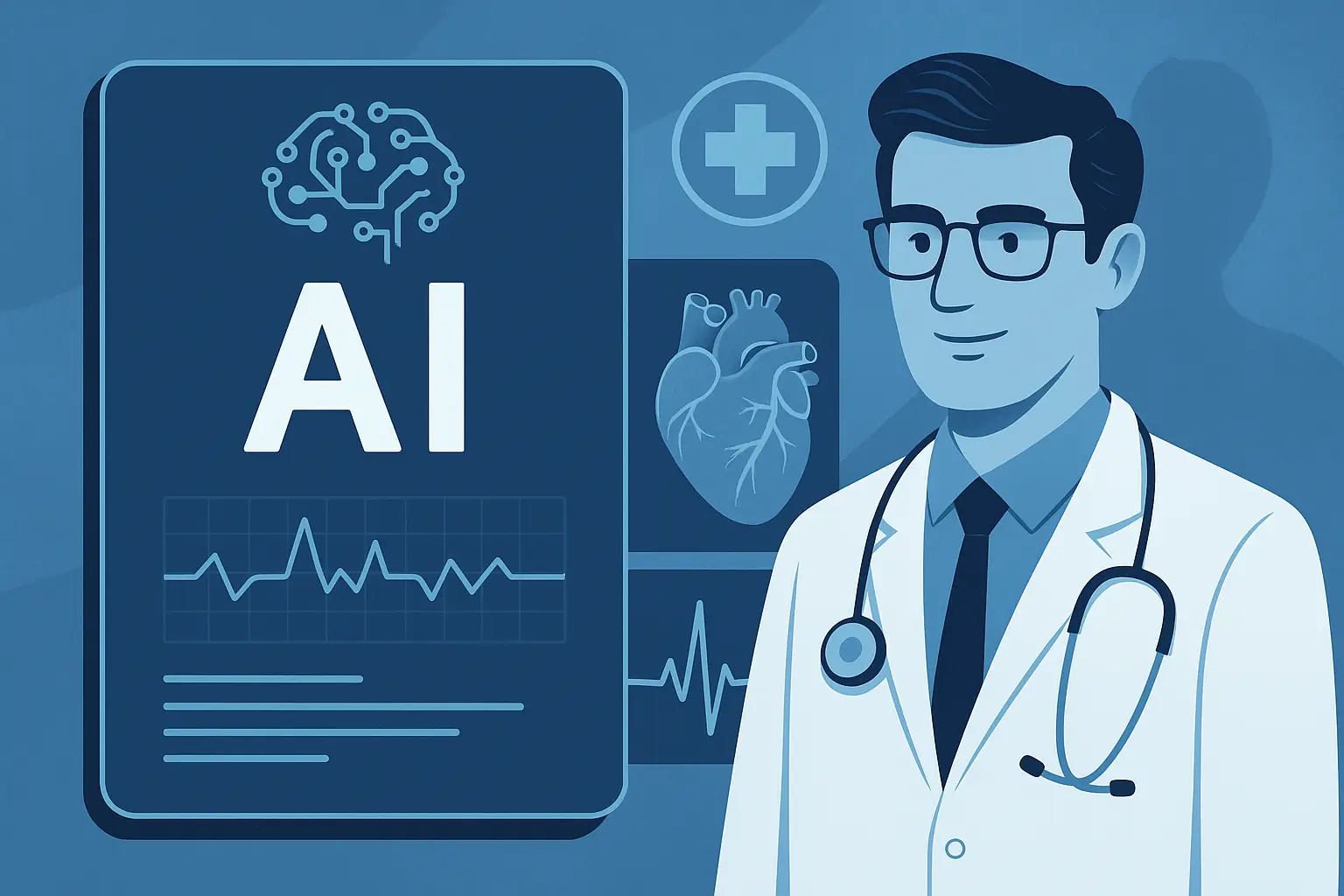Artificial Intelligence (AI) is revolutionizing healthcare from diagnostics to treatment, research to patient engagement. By analyzing massive datasets, automating workflows, and supporting clinical decisions, AI is driving improvements in accuracy, speed, and efficiency across the entire healthcare ecosystem.
This article explores how AI is reshaping the delivery of care and what it means for patients, professionals, and the future of medicine.
AI in Medical Imaging and Diagnostics
One of the most impactful uses of AI is in medical imaging, where algorithms can:
- Analyze X-rays, MRIs, CT scans, and ultrasounds
- Detect anomalies such as tumors, fractures, or infections
- Highlight areas of concern for radiologists
- Reduce diagnostic errors and improve early detection
AI systems like Google’s DeepMind and Zebra Medical Vision are helping clinicians interpret images faster and more accurately than ever before.
AI-Powered Predictive Analytics
AI models analyze patient data to:
- Predict disease risks based on genetics, lifestyle, and medical history
- Forecast disease progression or hospital readmissions
- Identify high-risk patients for preventive care
This enables proactive interventions that improve outcomes and reduce costs.
Virtual Health Assistants and Chatbots
AI chatbots and voice assistants support patients by:
- Answering questions about symptoms and medications
- Providing appointment reminders and follow-ups
- Assisting with mental health support
- Guiding patients through insurance and billing processes
Apps like Ada, Buoy Health, and Babylon Health are expanding access to reliable health information anytime, anywhere.
AI in Drug Discovery and Development
Developing new drugs is time-consuming and expensive. AI accelerates this process by:
- Identifying potential drug candidates from large datasets
- Predicting how compounds will interact with targets
- Designing molecules with specific properties
- Optimizing clinical trial designs
Companies like BenevolentAI and Atomwise are pioneering AI-driven drug discovery, reducing development timelines and costs.
Personalized Medicine
AI supports tailored treatment plans by:
- Analyzing genomic and molecular data
- Predicting individual responses to therapies
- Matching patients with the most effective treatments
- Supporting precision oncology and rare disease management
This shift toward personalized care is improving outcomes and minimizing side effects.
AI in Operational Efficiency
Hospitals and clinics use AI to streamline workflows by:
- Automating patient scheduling and check-in
- Optimizing staff allocation and resource utilization
- Managing supply chains and equipment maintenance
- Predicting demand for beds and services
These efficiencies free up healthcare professionals to focus on patient care.
Remote Monitoring and Wearables
AI-powered wearables and IoT devices can:
- Track vital signs such as heart rate, oxygen saturation, and glucose levels
- Detect abnormal patterns and alert clinicians
- Support chronic disease management from home
- Empower patients to engage with their own health
Remote monitoring reduces hospital visits and improves early intervention.
Benefits of AI in Healthcare
1. Faster, More Accurate Diagnoses
AI enhances diagnostic precision and speeds up results.
2. Personalized Treatment
Tailored care plans improve effectiveness and patient satisfaction.
3. Greater Accessibility
Virtual tools and remote monitoring expand care to underserved areas.
4. Cost Reduction
AI streamlines operations and reduces unnecessary procedures.
5. Innovation
AI accelerates research and unlocks new possibilities in medicine.
Challenges and Considerations
Despite its promise, AI in healthcare raises important issues:
1. Data Privacy and Security
Sensitive health data must be protected against breaches and misuse.
2. Algorithm Transparency
Clinicians need to understand how AI systems reach conclusions to ensure trust and accountability.
3. Bias and Inequality
AI trained on biased datasets can perpetuate disparities in care.
4. Regulation and Standards
Clear guidelines are needed to validate and govern AI applications.
5. Integration with Human Expertise
AI should augment, not replace, clinicians—preserving empathy and judgment.
Future Trends in AI Healthcare
Looking ahead, we can expect:
- AI-powered robotics in surgery and rehabilitation
- Natural language processing for electronic health records
- Digital twins of patients to simulate treatments
- Predictive public health models to manage outbreaks
- Voice AI to document and summarize consultations
These advances promise a smarter, more patient-centered healthcare system.
Final Thoughts: The Human-AI Partnership in Medicine
Artificial Intelligence is not here to replace healthcare professionals—it’s here to empower them. By combining human expertise with machine intelligence, we can build a future where care is faster, fairer, and more effective for everyone.
As AI continues to evolve, the focus must remain on ethical implementation, patient trust, and collaboration between people and technology.
